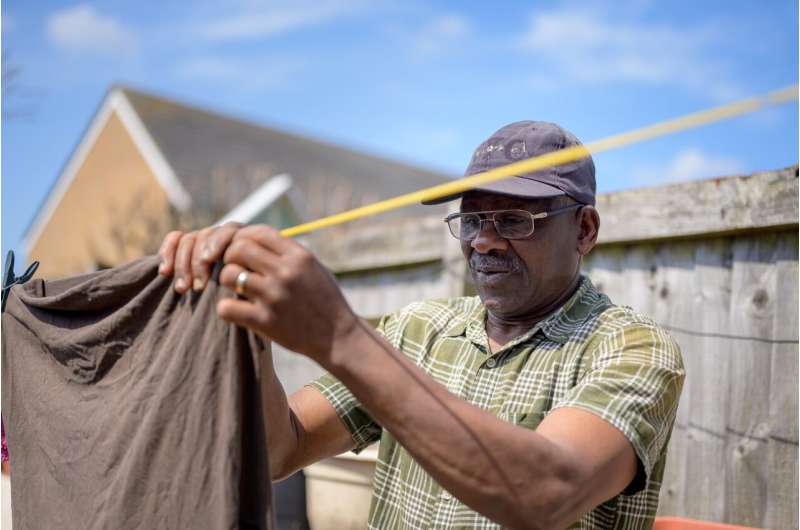This article has been reviewed according to Science X's editorial process and policies. Editors have highlighted the following attributes while ensuring the content's credibility:
fact-checked
peer-reviewed publication
trusted source
proofread
Arm robots are not the answer for stroke rehabilitation, research suggests

Commercial arm robots are increasingly deployed in order to aid stroke patients in their recovery. Around 80% of patients have problems with their arm function. Robots are also seen as a solution to financial, and staffing, shortcomings in the health care sector. However, research led by Amsterdam UMC now shows that they offer no clinically meaningful effects for patients. The research is published in Neurology.
"In particular countries such as China, Japan and South Korea, but also in North America and Europe, UL-Robots [are] seen more and more as the solution for lack of intensive upper limb training. But our research shows that they really need to be rethought if they are ever to meaningfully contribute to [the] care package that we can offer," says Gert Kwakkel, Professor of Neurorehabilitation at Amsterdam UMC and the leader of the study that started in May 2020.
The researchers analyzed 90 studies using data from more than 4,000 patients who rehabilitated after a stroke with or without the help of arm robots.
The results of the study show that, despite a small improvement of about 3% in muscle and arm function, this did not result in an improvement in arm-hand dexterity. Furthermore, it appears that the health care costs are only higher with the purchase of a robot than with regular treatment with a physiotherapist or occupational therapist.
"Our findings provide robust evidence. This evidence is independent of the type of robot used, the number of weights the robot checks, the cost, and additional features—such as virtual game displays—that have been added to the robot arm," says Kwakkel, who is also head of research at Amsterdam Rehabilitation Center Reade.
"With the data of more than 4,000 patients and thousands of treatments, we would have been able to demonstrate the presence of a positive effect of the arm robots. The fact that this did not happen suggests that the arm robots are more of a hype than an actual solution."
"We saw that arm robots have evolved tremendously over time, but that despite improvements in technology, they have not delivered any improvement for patients over the past two decades. Despite the fact that the robots are being used more and more, the evidence is still lacking," says Kwakkel.
"Robots that can completely take over arm and hand functions, by using an interface that is directly or indirectly controlled from the brain, seem to be more promising when it comes to regaining important functions such as grasping and reaching. However, this development is still in its infancy. For the time being, future research in the field of rehabilitation robotics will have to focus more on better understanding how stroke patients learn to regain their skills."
More information: Luca De Iaco et al, Upper Limb Robots for Recovery of Motor Arm Function in Patients With Stroke, Neurology (2024). DOI: 10.1212/WNL.0000000000209495


















